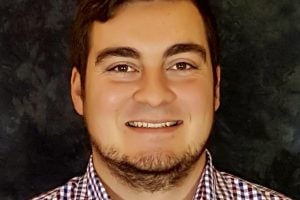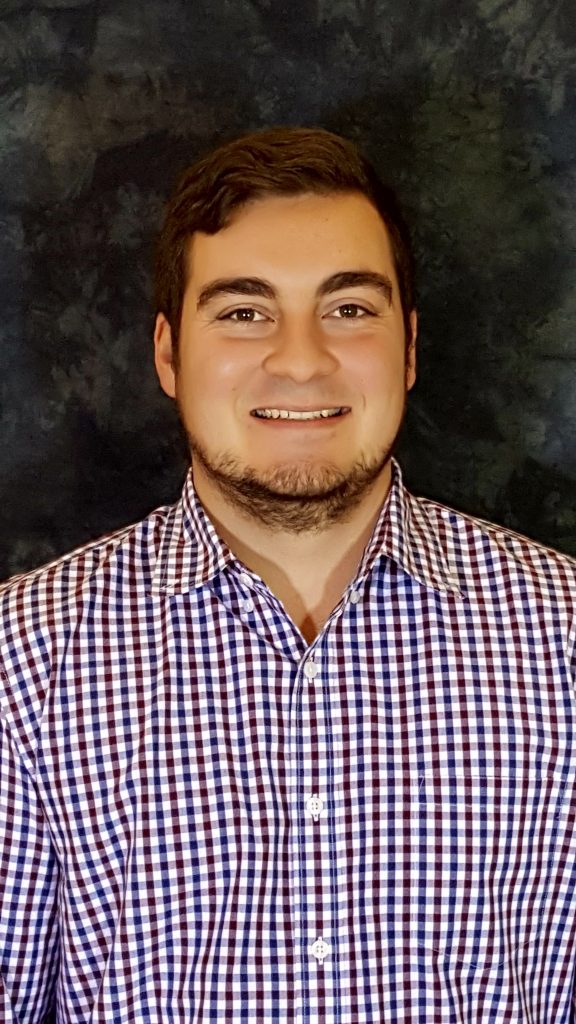
What made you choose Johns Hopkins?
I chose Johns Hopkins because I wanted to go to a school with a name globally recognized for its outstanding engineering programs. I fell in love with the campus the second I saw it, and I knew that Johns Hopkins was the perfect place to get involved in meaningful scientific research. Also, Hopkins had a variety of engineering disciplines to choose from. I wanted the opportunity to figure out which department I was most interested in once I got to campus. At Hopkins, any decision I made about which major to choose would have been a good decision.
Were you involved in any research in the department?
Yes. I worked in Dr. Mao’s lab performing research on peripheral nerve regeneration. Specifically, I worked to test different hydrogel compositions and spin techniques to promote axonal extension in Schwann cells. My senior year, I moved to Dr. Searson’s lab to work on a design team. Our team developed a wearable sweat sensor to aid in Cystic Fibrosis diagnosis and treatment. The device transmitted voltage data over a Bluetooth network to a cell phone or computer.
Do you have any memories that stand out from the classroom or lab?
Completing our design team project was one of the most rewarding experiences of my life. It was extremely interesting to see an idea turn into a useable product in a short 12 months. I think this experience taught me a lot about working as a team, and it helped me figure out some of my strengths as an engineer and teammate.
More generally: how did you get interested in materials science and engineering?
A friend of mine actually advised me to major in materials science and engineering. I never really considered it until I got to Hopkins, but once I understood how broad the scope of materials engineering actually is, it immediately appealed to me. I also loved the idea of being in a smaller classroom. It really paid off because I feel like I developed personal relationships with professors that students in larger majors do not.
How has life been after graduation?
Life has been great! I moved to D.C. after graduation and have been here ever since. I think my experiences at Hopkins were the greatest challenge of my life. My professors and peers at Hopkins taught me how to work hard and dream big. The lessons I learned during my four years at Hopkins have played a huge role in my happiness and success after graduation.
Where are you working now? Is it related to what you were involved in during your time at Hopkins?
I am currently a law student at American University’s Washington College of Law. I am studying to become a patent attorney. This, obviously, is a pretty big change from what I studied at Hopkins. That being said, my engineering degree from Johns Hopkins has played a vital role in preparing me to succeed in the field of patent law. Patent law mixes scientific education with legal education, and although becoming a lawyer may seem drastically different than becoming an engineer, I anticipate using the knowledge I gained as a materials science and engineering major every day in my practice.
Do you have any advice for aspiring engineers and materials scientists?
Generally speaking, I would say never miss an opportunity to learn how to think outside of the box. Critical thinking skills and creativity will take you a long way. Also, always keep an open mind. Every engineering discipline varies slightly, and even though you might not think you are interested in a specific field, give it a try. I did, and I found the perfect major for me. More specifically, Hopkins engineers should utilize the vast network of alumni. I only graduated two years ago and the Hopkins alumni network has already opened doors for me that I would have never thought to open. We have alumni in a wide variety of fields looking to help out the next generation of Hopkins graduates. Reach out to them, talk to them, and use their knowledge of the fields you are trying to break into to give yourself an advantage.
